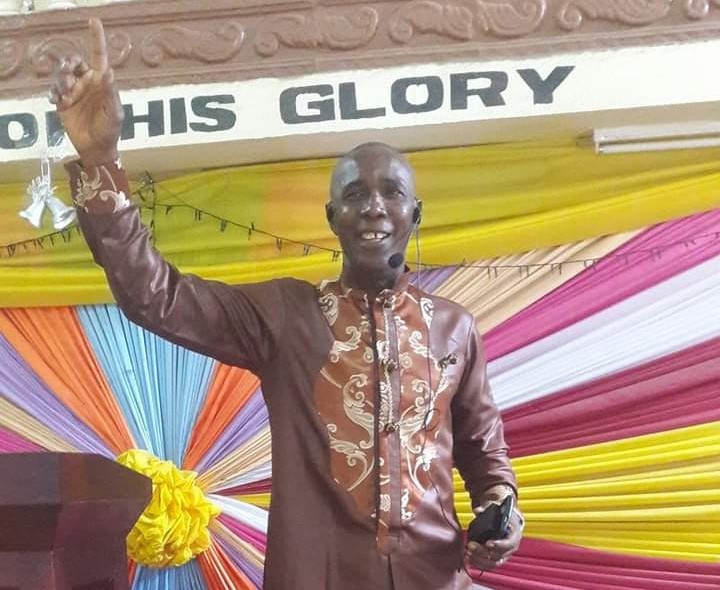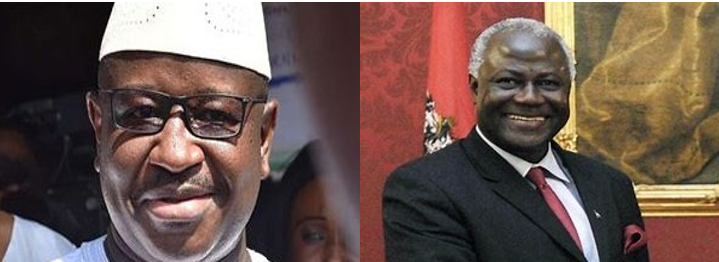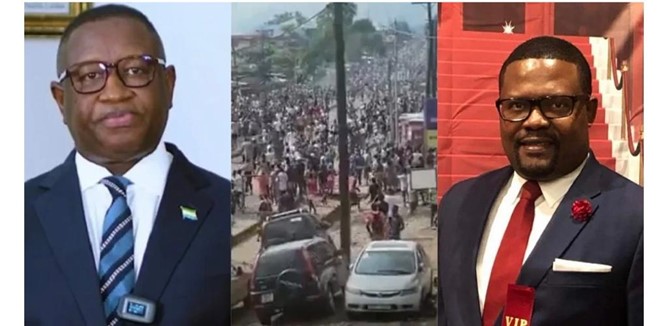B Jabbie vs SLPP and Others: A Casual Treatise
Time allowed there would have been exhaustive analysis of what is seemingly the Dr. Bu-Buakei Jabbie vs SLPP court matter. Nevertheless, and after some few days of scratching of heads, we thought it is better placed if we can attempt to do justice to the topic on floor.
Of course, it is a fact that readers of the Sierra Express Media await real time analysis of the Dr. Bu-Buakei Vs SLPP Supreme Court matter.
Just few days ago, Dr. Bu-Buakei (in photo) was at the Supreme Court legally seeking for an injunction to stop the his party (Sierra Leone Peoples Party) go ahead with its March 5th convention without electing a national executive as prescribed in the party constitution. Dr Jabbie’s point apparently centered on the unlawful violations of the party constitution by members of SLPP’s national executive; that the party’s life was longed expired.
Disgruntled party loyalists, at first go against Dr. Bu-Buakei’s point of view and were observed at their party houses, street bars, off roads, high ways, and at public offices mouth lashing the former’s conduct as ‘extreme party sabotage.’
It was glaring though that Dr. Bu-Buakei virtually had no one in the SLPP to join him correct wrongs of the national executive except for his elder brother, who on two occasions was booed at by party supporters.
The Supreme Court, by virtue of its powers, looked at submissions of either sides- Litigant or Defender and therefore slammed verdict to the favour of Dr. Bu- Buakei, whose request was to have the court put an injunction stopping the conduct of SLPP March 5th convention.
Put simple, the court held that the convention cannot be held on 5th March, and there shall be no activity under the current executive.
The decision was read late in the evening and reactions of disappointed SLPP supporters was observed at corners and highways of the city of Freetown.
Shades of thought took over pages of newspapers online and in print. For many, the decision was unfair and confusing.
At this point, lawyers defending SLPP told the Supreme Court Judges that they will be withdrawing their representations owing to the unsatisfactory decision.
Such, according experience legal practitioners, might presumably hamper the SLPP party.
The many dissenting voices may have led the office of the Chief Justice to protest, warning the SLPP defense lawyer that if their actions lead to violent dissent, they will all be disbarred.
This may have been a pre-emptive statement, but I doubt if the lawyers took it seriously.
In any case, the defense had already accepted their fate and decided to move on with the case swiftly.
Did the Supreme Court have original jurisdiction to hear the case? To the layman, the Supreme Court is primarily an appellate court, and has original jurisdiction only in a small range of cases.
The Supreme Court’s power extends to all cases arising under the constitution and the Laws of Sierra Leone.
The Supreme Court may exercise original jurisdiction in cases affecting diplomats, and in cases in which the state is a party.
In all other cases, it exercises only appellate jurisdiction. In practice, the only original jurisdiction cases heard by the Supreme Court are disputes between states.
The Supreme Court has been criticized for judicial activism (not keeping within constitutional bounds). It is thought that the court should only interpret law and exercise judicial restraint. Many opine that judges have conducts a subtle coup d’état. The Supreme Court is, in some respects, certainly a legislative body. Some Supreme Court decisions have been criticized for injecting the court into the political arena, and deciding questions that are in the purview of the legislative or executive arms of government.
Abdulai Kamara, Freetown
Stay with Sierra Express Media, for your trusted place in news!
© 2011, https:. All rights reserved.






